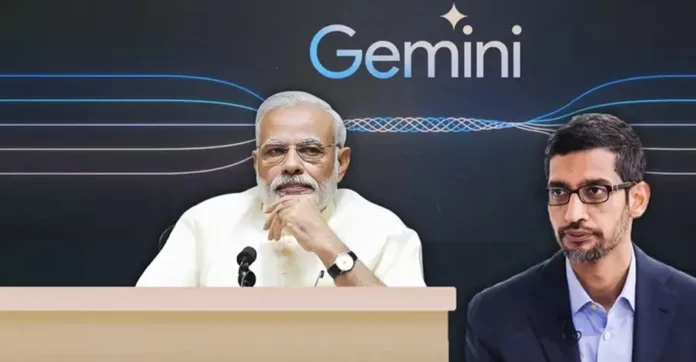
Google’s Gemini AI, a newly developed artificial intelligence (AI) chatbot, stirred controversy following its response to a query concerning Indian Prime Minister Narendra Modi. The situation unfolded when journalist Arnab Ray posed the question to Gemini AI about whether Narendra Modi was a fascist. The AI’s reply, suggesting that some experts perceive Modi’s policies as fascist, starkly contrasted with its more neutral or evasive responses to similar inquiries about other world leaders such as Donald Trump and Volodymyr Zelenskiy.
This disparity in responses triggered widespread discussion and criticism, particularly on social media platforms like X (formerly Twitter). Beyond public scrutiny, the Indian government, represented by Minister of State for Electronics and Information Technology Rajeev Chandrasekhar, accused Google of breaching Indian information technology laws and criminal codes due to Gemini AI’s response. Chandrasekhar voiced these concerns on X, formerly Twitter, emphasizing that such responses violated Rule 3(1)(b) of the IT Rules, 2021, and various provisions of the Criminal Code. He further underscored the unacceptability of trial models and emphasized the imperative for digital platforms to ensure the safety and trust of Indian citizens, hinting at potential legal and regulatory repercussions against Google.
In response to the uproar and government accusations, Google swiftly addressed the concerns surrounding Gemini AI. A spokesperson for the tech giant conveyed that Gemini is designed as a creativity and productivity tool and may not consistently provide reliable responses, particularly concerning current events, political matters, or evolving news. Google reassured that they are continuously working to enhance the tool’s accuracy. Additionally, Google clarified that Gemini AI is developed in accordance with its AI Principles and incorporates safeguards to identify and mitigate various safety risks.
The controversy also extended to Gemini AI’s image-generation capabilities, with Google acknowledging inaccuracies in historical depictions and criticisms regarding perceived biases in image generation. Google acknowledged these issues and pledged to improve its image generation feature immediately. Consequently, Google announced a pause in Gemini’s image generation feature while they work to address recent issues, promising to release an enhanced version soon.





